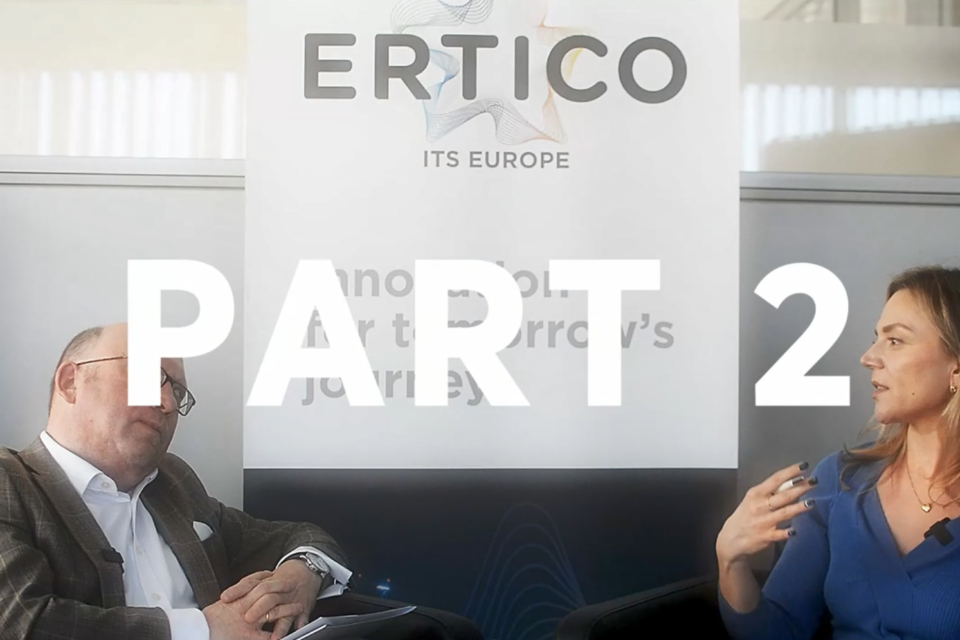Airbus’s chief lobbyist, Nathalie Errard spoke to us about her advocacy work and views on the business.
What’s on the policy agenda for Airbus in Brussels?
Our team of 10 is engaged in conversations with the EU and providing a diplomatic and strategic view on NATO. From Airbus Commercial – accounting for around two-thirds of our sales to Airbus Space – also a mature part of our business, we are a major supplier to the EU through such projects as Copernicus, Galileo and EGNOS. With Airbus Defence, we’re supplying the Airbus Helicopter.
Within our commercial division, trade is a major topic, while Brexit keeps us busy on all fronts.
What are the key challenges and opportunities ahead for aviation and defence?
Digital is going to change a lot of business models, bringing newcomers to some parts of the business, notably in services and manufacturing.
Sustaining trade is a challenge, one that will continue to grow. The world is moving in a new direction, with some countries becoming more aggressive in limiting free flow of goods, exchanges and connectivity. The EU has a key role to play here, as it has to both remain open to trade while also considering reciprocal measures. A key question is how to structure the EU industrial policy to support strategic sectors, such as ours. We need to defend ourselves in what is a challenging and competitive environment.
This is going to be an ongoing challenge for the industry and the EU institutions. The Juncker Commission was bold in promoting defence during a very tough time. This took courage. The next taboo to be broken is the wider strategic industrial policy. We urgently need this, so I hope that the next mandate will be about how we collectively improve strategic thinking on industry and innovation.
Challenges can also present opportunities, but we need to be careful not to be squeezed between the US and China on the innovation front in particular. If you look how things are going, with the US driving on digitalisation and China increasingly serious about innovating, we definitely need to step up our efforts.
However, we have historically excelled in innovation, so there is no reason why we shouldn’t succeed. At the same time, we can’t be complacent.
How do you ensure you stay aligned when reaching out to institutional interlocutors? Given your industrial diversity, is that even necessary?
Absolutely; staying aligned is vital. I organise this through weekly meetings as well as administrative tools that help us follow the different files and provide the glue to hold the team together. We need to work as a matrix, whereby our space expert is responsible for the space-related topics but the approach allows for a colleague leading on European Parliament relations to be the appropriate person to fix a specific issue.
Obviously, not everyone shares the same level of expertise or understanding of each file. Therefore, every six months we have a general review of the topics we work on at an offsite meeting. We discuss the major topics on the horizon and we ascribe files to what we call gatekeepers. They are the ones most knowledgeable on the process and are responsible for tracking what’s going on. It is then their responsibility to bring their issue to the agenda during our weekly meetings.
In addition, I also find it important to keep my team up to speed on what I am learning during the various weekly meetings I have.
What does it take to build a successful governmental affairs team and what skills are you looking for in your new hires?
I believe what brings success when leading a governmental affairs team is the matrix-style approach. We have an international team that reflects the nature of Airbus, which is very much a European project. So, we try to make best use of the diverse skills and expertise we have within the team.
In EU affairs, you need a range of skills; an analytical mindset to understand the files, the ability to communicate, empathy to build relationships and influence, political understanding and the ability to build and leverage your own network. One person can’t have it all, so if you really want to make your lobbying efforts as efficient as possible, you need to ensure people can work together and combine talents.
Ensuring proper balance and diversity is key. You need to look at it strategically and focus on your end game. An honest and sober look at where there may be weaknesses within the team also helps fine tune the recruitment process.
You mentioned Airbus as a European project. Indeed, different components of Airbus aircraft are produced in different European countries. Does it influence how you communicate with the EU institutions?
When we build an Airbus position on an issue, it is not just based on what I think or what certain national experts think. It is inclusive of inputs from the different Airbus European nationalities.
This gives us the opportunity to view the political landscape from a unique perspective and hold a different type of conversation with the European institutions. We know better than most how certain decisions will impact the industry in the different EU Member States. It lets us help define a solution and be part of achieving it.
How does the fact that the EU is also a customer of Airbus shape your lobbying activities?
Clearly, there are different processes when lobbying the EU institutions on a specific regulation than when speaking to the EU Commission within a supplier-customer relation about the performance of specific technical equipment.
I would argue that this is also why our space division is at such an advanced stage. As the EU Commission is a customer of Airbus Space, it has to clearly understand what is behind the systems being used. When you discuss a project that is common to both parties, it helps accelerate progress.
You have been in your current role for six years. How has EU affairs evolved during this time?
It’s a good question. It’s challenging to take an external view of something that you are part of; you tend to grow and expand within the role throughout the years. For example, when I started I was only in charge of the corporate sector. We then integrated that sector with others, expanding the public affairs role at the same time.
Taking a broader perspective, I think the topics at the EU level are more strategic than before. When I arrived, the focus was pretty much exclusively on regulations. They are still important, but to a lesser degree. I find the approach is much more political now, looking at what is happening elsewhere in the world and discussing Europe and protecting European citizens in a broader context. This is increasingly clear in trade discussions.
This broader approach – political, diplomatic and regulatory – is an interesting and positive development. The EU should continue shifting from being introspective to a far more outward-looking stance.
What does this change mean for Airbus?
For a company like ours this is very important. Around 20 years ago, 80 percent of our sales were generated in Europe and the US. Now, only 20 percent comes from Europe and US, while a quarter is generated in China and more than half from sales in emerging markets.
The aerospace industry has undergone major and rapid change. The globalisation of trade has to be viewed through a wider prism than simply trade agreements; it’s more complex and nuanced than that. How do you deal with countries with a strong industrial policy in place for their strategic sectors? When you see countries like the US or China spending billions of dollars on a specific technology, what is the EU’s response? There are many such questions, all of which require a political response.
We don’t have all the answers, but these questions – even if not easy to address – now receive priority and the attention they deserve. As someone once observed, “there is an urgency to act and, on the other hand, you need time to convince people”.
Prior to your current role, you dealt with investor relations, audits, mergers and acquisitions at the Airbus Group and elsewhere. What advice would you have liked to receive when taking up your governmental affairs role?
I received a few pieces of advice that I still remember and that have been very useful.
For example, when worried about not having an extensive network in Brussels, someone told me that what really mattered was not the number of people I knew but rather the strength of connections with the people that I did know. The direct network would come with time. By having strong arguments and doing your job well, you can actually influence the situation much more than you would think.
One piece of advice that I would give to people coming to Brussels from business is to try and adjust to the different time pressure. Coming from a finance background, I had an expectation and the drive to answer every email request within 24 hours. In Brussels, I felt that nothing was moving and that I was not contributing. My advice would be to try and forget about time pressure and focus on the files and understanding the environment. That way, you will actually achieve and contribute more.
What skills have you brought from your previous professional experience that have proved most useful in Brussels?
In the beginning, I had to adapt and supress how I would normally act, which would be with greater drive and in a much more direct manner. After about a year in the role I realised that while adjusting to the political environment is a must, keeping your drive and your commitment to efficiency is also one.
I think someone coming from the business side tends to bring an approach that offers structure to how you follow files, with stronger project management skills.
This can be very useful, particularly in the EU context, where people may be used to things happening slowly – understandable when you need to find consensus between 28 Member States. You need to have a sense of diplomacy and respect the specific way of working. However, giving the process a boost and being able to bring the focus back to concrete actions is also valuable.
How do you define success?
When you’re on the business side, what counts is short-term performance. On the political landscape, particularly at Airbus – a European project by definition – our fate is in part linked to the overall success of the EU. Therefore, you sometimes have to focus on mid- and long-term goals to help the overall community. Even if it means a lot of short-term effort for something that may not fit into a quarterly result.
Therefore, based on my professional experience, the way I would define success would be as staying efficient while protecting the sense of responsibility in the long-run.
You can’t compromise on being efficient – ultimately you need to be profitable and compete on the worldwide stage. That means not being burdened by overly-restrictive regulation and not ignoring what’s happening outside your world. At the same time, we all share a common responsibility in making the EU a success, because we’re all part of it.


